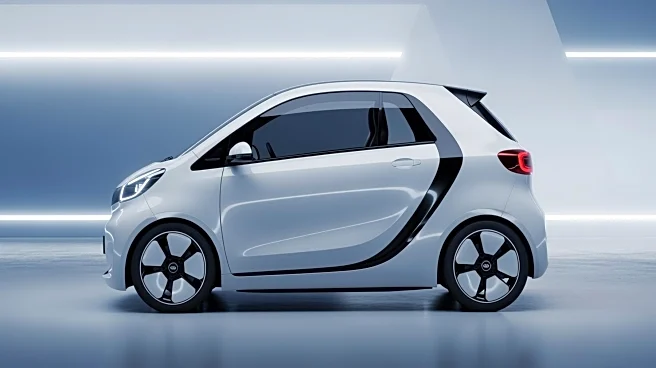What's Happening?
The Canta EV, a Dutch electric microcar, is redefining micromobility with a focus on accessibility and social innovation. Originally designed for disabled drivers, the Canta has transitioned to an electric model, maintaining its compact design and sidewalk-legal
status in certain jurisdictions. With a top speed of 45 km/h, the Canta EV is tailored for urban environments, offering a sustainable transportation option that prioritizes social inclusion. Built by Waaijenberg Mobiliteit, the vehicle is custom-made to accommodate wheelchair access and specialized controls, emphasizing its role as a mobility aid rather than a conventional car.
Why It's Important?
The Canta EV represents a significant step in the evolution of micromobility, highlighting the importance of designing vehicles that cater to marginalized groups. By focusing on accessibility, the Canta EV not only provides independence to disabled individuals but also contributes to the development of human-scale cities. Its electric transition aligns with global sustainability goals, offering a model for other cities to follow in promoting inclusive transportation solutions. The Canta EV's success could inspire further innovations in the micromobility sector, encouraging manufacturers to prioritize accessibility and environmental considerations.















